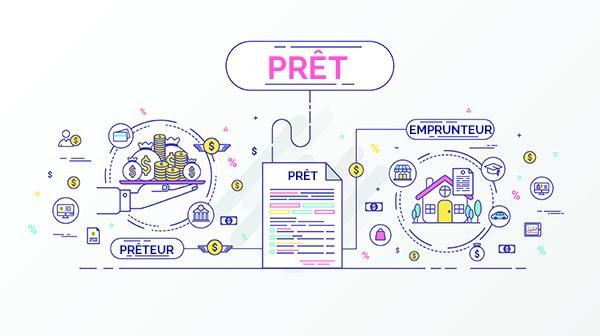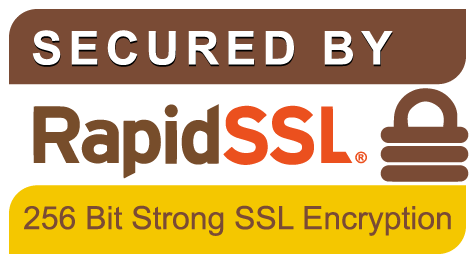
ONLINE MORTGAGE LOAN COMPARATOR COMPARE 20+ BANKS IN 2 MINS ONLY A SIMPLE ONLINE FORM TO FILL OUT FREE AND WITHOUT OBLIGATION
COMPARE 20+ FINANCIAL INSTITUTIONS IN 2 MINUTES
WITH ONLY ONE APPLICATION!
Whether it is for a new purchase, a pre-approval or a renewal, a mortgage broker can get you the best loan with the lowest interest rate, according to your needs and criteria.

COMPARE 20+ BANKS IN ONLY ONE STEP FOR YOUR MORTGAGE!
Fill out the form below and a mortgage broker from your area will rapidly contact you to help you find the best possible offer.



Stress test and borrowing capacity: How do lenders make the decision to lend to you or not?
It is always a little stressful to go to your bank when you need to take out a mortgage.
Will my banker agree to lend me money? If so, up to what amount? What does he look at and analyze before deciding whether to provide me a loan or not?
When we start looking for information on the internet, we realize that the methodology of lenders often seems complex and not so easy to understand.
Fortunately, we are here to unravel all of this for you.
Here we will explain how lenders calculate your borrowing capacity using a stress test and what factors they use to decide whether or not to lend to you.

Loan Application Analysis: What are the critical factors that banks look at?
You are finally ready to buy your house.
You have worked hard, saved for a down payment, and done your homework.
Now all you have to do is find the right financing.
So you go to your lender to get a mortgage.
Your banker looks at your file to determine if you meet the criteria.
But what are the critical factors that banks look at to assess whether they should approve your loan application?
Here are the main factors and ratios used:
- Gross Debt Service ratio
- Total Debt Service ratio
- GDS and TDS ratios based on a stress test
- The percentage of down payment
- Credit rating
- Financial stability
- and more!
It is important to understand that the decision your lender makes when you apply is based on purely objective criteria beyond his control.
Using a system, he factors in your income, expenses, and the mortgage rate of the stress test and if the ratios that come out exceed established standards, he cannot grant you the loan.
However, if you have a big down payment (20%+), loan approval is then in the judgment of the bank’s analysts.
You can thus exceed the targeted debt ratios in the system, and still get a loan if your financial situation is exceptional or special.
If you are interested in getting a loan from one of the top 10 private lenders in Quebec, check this out.
The two preferred borrowing ratios of lenders: GDS and TDS
First, it is important to understand that 2 ratios govern all mortgage applications in Canada.
These two ratios are actually percentages of indebtedness that are based on the income and expenses of a household.
They are called:
Gross Debt Service (GDS); and
Total Debt Service (TDS).
It is important to know these two ratios to understand how bankers think and how they analyze a mortgage application.
Below we will explain precisely how these two ratios are calculated.

Ratio # 1: Gross Debt Service (GDS)
The first ratio that your lender will calculate is the gross debt service based exclusively on the property you intend to acquire vis-à-vis your income.
This calculation therefore takes into account the following factors:
- Your income
- The purchase price and the mortgage rate in effect
- The down payment
- The monthly mortgage
- Heating costs
- Municipal and school taxes
Basically, the overall cost of your new property is calculated in relation to your income. The calculation is quite simple and is done as follows:
Mortgage payment (principal + interest) + heating costs + municipal and school taxes
Gross Income
The gross debt service ratio (GDS) should not exceed 32% according to the latest standards in force in 2018.
For example, if you earn $45,000 a year, your mortgage costs $11,000 a year, your heating costs $2,000 and your taxes $3,000, you’ll get the following calculation:
$10,000 + $1,500 + $2,500 / $45,000
You would have a GDS ratio of 31.11%, which is reasonable.
Ratio # 2: Total Debt Service (TDS)
The second ratio that lenders calculate on each loan application is Total Debt Service (TDS).
For this second ratio, the bank uses all of your debts against your gross income to assess your ability to repay your financial obligations.
Here are the elements that lenders take into account in this calculation:
- Your income
- The purchase price and the mortgage rate in effect
- The amount of the down payment
- The monthly mortgage
- Heating costs
- Municipal and school tax amounts
- Auto loan
- Student loan
- All other loans or debts
As you can see, we calculate here the depreciation of TOTAL of all your debts, hence the name of the ratio.
The calculation is therefore:
Mortgage payment (principal + interest) + heating costs + municipal and school taxes + student loan + car loan + other loans
Gross income
The Total Debt Service (TDS) ratio should not exceed 40% to enable lenders to approve your application.
It is important to understand that you must respect both ratios (32% maximum for GDS and 40% maximum for TDS) for your application to be approved by bankers.
Stress test: Mandatory for all Quebecers
Banks are cautious and it’s not enough that you pass both the GDS and TDS ratios using the standard mortgage rates to convince them that you qualify for a loan.
For several years, lenders have been demanding that a mortgage stress test be run on every loan application.
What is the stress test?
Well, instead of calculating your GDS and TDS ratios using the mortgage rates in effect at the time of your application (ex. 3.20%, 3.40%), the bank will instead use the benchmark rate of the Bank of Canada.
This rate is currently around 5.34%.
The purpose of this stress test is to see if you still meet the ratios should mortgage rates increase and if you will be able to keep up with your financial obligations.
If you do not meet the established ratios under the stress test, your application will be refused.
If you want to see if you qualify for a mortgage under these new regulations, you can also use this tool from the Financial Consumer Agency of Canada.

The down payment and your personal records can tip the scales
You now know what ratios the banks rely on and what rate they rely on for their stress testing.
In our opinion, it is always prudent to calculate your debt ratios with the current rate plus 2%.
If you pass the test, chances are good that you can get approved for a loan.
But the question arises: do banks rely solely on stress testing to approve a mortgage application?
The answer is no!
In fact, the amount of the down payment and the client’s personal records can tip the balance.
For example, buyers with a down payment greater than 20% do not necessarily have to meet GDS and TDS ratios under certain conditions.
Buyers with exceptional records and a situation that justifies higher debt ratios can still obtain their loan if their down payment exceeds 20%.
Personal records can also make a difference.
Credit rating is VERY important. Some lenders categorically refuse certain requests when the credit rating is below a certain level. So take care of your credit as much as possible.
If you have ever had a bankruptcy in the past, it is highly likely that the lender will take this into account and this may affect your loan request.
Your investments, assets, and other factors can affect your lender’s analysis but usually only if you have a down payment exceeding 20%.
#1 Tip to maximize the chances that your loan application will be accepted
We know what you are wondering: is there a secret to optimize the chances of a loan application being accepted?
Well, the answer is YES.
If you look at the correlation between the acceptance rate of applications and the number of clients who have done business with a mortgage broker, you will realize that it is very high.
Mortgage Brokers MAKE THE DIFFERENCE.
These are mortgage experts who know how to build your file and who are very efficient in referring you to banks.
They know what to say, what documents to provide, how to negotiate, and how to get your loan approved in the best possible conditions.
If you apply for a loan with a mortgage broker, you will increase your chances of being approved and a better rate.
Learn about the 7 mistakes to avoid when looking for the best mortgage rate.

Fill out our form to apply for a loan with a mortgage broker
and compare rates of +20 banks.
Do you want to apply for a loan to obtain financing to buy a house?
Maximize the chances of getting an approval quickly through a mortgage broker.
His services are 100% free and he will help you not only to apply but to shop for your mortgage product and rate.
With his proprietary software, a mortgage broker can compare offers and rates of more than 20 banks simultaneously.
Why shop alone while an expert is just waiting for your call to help you?
Fill out our free, no-obligation form to get in touch with a high-performance mortgage broker in your area.
Our partners know how to prepare your file so that it will be acceptable to lenders. They will also get you the best mortgage rate available and will save you time and money.
Do not wait any longer and fill out our form to find YOUR mortgage broker to quickly get your loan acceptance!


